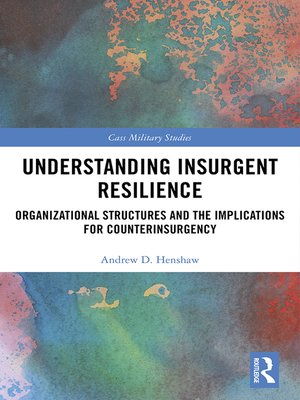Understanding Insurgent Resilience
ebook ∣ Organizational Structures and the Implications for Counterinsurgency · Cass Military Studies
By Andrew Henshaw

Sign up to save your library
With an OverDrive account, you can save your favorite libraries for at-a-glance information about availability. Find out more about OverDrive accounts.
Find this title in Libby, the library reading app by OverDrive.



Search for a digital library with this title
Title found at these libraries:
| Library Name | Distance |
|---|---|
| Loading... |
This book examines terrorist and insurgent organisations and seeks to understand how such groups persist for so long, while introducing a new strategic doctrine for countering these organisations.
The work discusses whether familial or meritocratic insurgencies are more resilient to counterinsurgency pressures. It argues that it is not the type of organization that determines resilience, but rather the efficiency functions of social capital and trust, which have different natures and forms, within them. It finds that while familial insurgencies can challenge incumbents from the start, they weaken over time, whereas meritocracies will generally strengthen. The book examines four of the most enduring and lethal insurgent organizations: the Haqqani Network in Afghanistan, Lashkar-e-Taiba in Pakistan, Jemaah Islamiyah in Indonesia, and the Abu Sayyaf in the Philippines. The author breaks down each group into its formative strengths and vulnerabilities and presents a bespoke model of strategic counterintelligence that can be used to manipulate, degrade and destroy each organization.
This book will be of much interest to students of counterinsurgency, terrorism, intelligence, security and defence studies in general.







